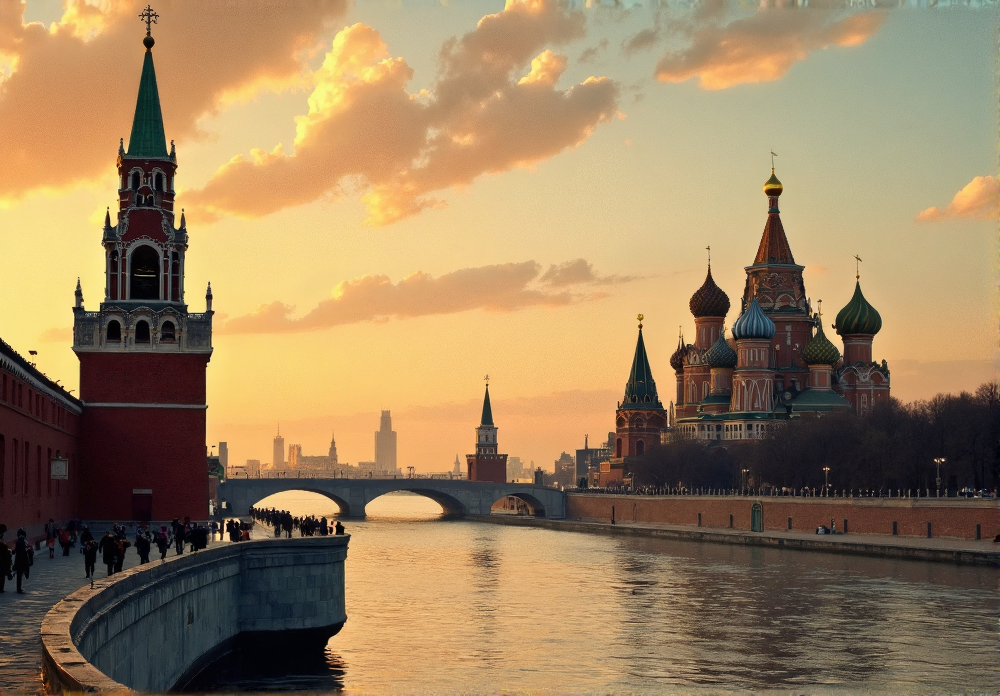Moscow, the capital of Russia, has been a focal point of world history for centuries. Its rich cultural heritage, political significance, and architectural marvels have inspired countless observations and reflections. Let’s explore some notable quotes about Moscow and analyze their relevance in today’s context.
1. “Moscow is a city that has much suffering ahead of it.” – Anton Chekhov
This prophetic statement by the renowned Russian playwright Anton Chekhov encapsulates the tumultuous history that Moscow would endure in the decades following his death.
Analysis:
Chekhov’s words, spoken in the late 19th century, foreshadowed the immense challenges Moscow would face in the 20th century. The city witnessed the fall of the Tsarist regime, the Bolshevik Revolution, Stalin’s purges, the devastation of World War II, and the tensions of the Cold War. Even in the 21st century, Moscow continues to be at the center of geopolitical tensions, economic challenges, and social upheavals. The quote serves as a reminder of the city’s resilience in the face of adversity and its ability to reinvent itself through various historical epochs.
The suffering Chekhov alluded to has manifested in various forms, from political repression to economic hardships, making his words eerily relevant even today.
2. “Moscow is not a city, it’s a world.” – Leo Tolstoy
Tolstoy’s observation highlights the vastness and complexity of Moscow, both in terms of its physical size and its cultural significance.
Analysis:
This quote remains profoundly relevant in the modern context. Moscow has evolved into a global metropolis, home to over 12 million people from diverse backgrounds. It serves as a melting pot of cultures, a hub of international business, and a center of political power. The city’s influence extends far beyond its geographical boundaries, shaping global politics, economics, and culture.
In the 21st century, Moscow’s role as a “world” unto itself has only been amplified. It stands as a symbol of Russia’s resurgence on the world stage, hosting international events like the 2018 FIFA World Cup and serving as a key player in global diplomacy. Tolstoy’s words remind us of the city’s enduring significance and its capacity to encapsulate the complexities of an entire nation within its limits.
3. “If you want to know Russia, you must know Moscow.” – Alexander Herzen
Herzen, a 19th-century Russian writer and thinker, underscores Moscow’s central role in understanding the Russian psyche and culture.
Analysis:
This quote remains incredibly pertinent in today’s geopolitical landscape. As Russia continues to assert its influence on the world stage, understanding Moscow becomes crucial for comprehending Russian motivations, aspirations, and actions.
Moscow serves as a microcosm of Russia’s contradictions and complexities. It embodies the nation’s rich history, with landmarks like the Kremlin and Red Square standing alongside modern skyscrapers. The city reflects Russia’s ongoing struggle between tradition and modernity, authoritarianism and democracy, East and West.
In an era of increased global tensions involving Russia, Herzen’s words serve as a reminder of the importance of cultural understanding in international relations.
4. “Moscow does not believe in tears.” – Vladimir Gilyarovsky
This famous Russian proverb, popularized by journalist Vladimir Gilyarovsky, speaks to the resilience and stoicism of Muscovites.
Analysis:
The phrase has taken on new meanings in the modern context. It reflects the city’s ability to withstand economic sanctions, political isolation, and internal challenges. Moscow’s resilience is evident in its rapid modernization, its hosting of major international events, and its continued influence in global affairs despite various pressures.
The quote also speaks to the character of Muscovites themselves, known for their toughness and ability to adapt to challenging circumstances. In an era of global uncertainty, economic fluctuations, and political tensions, this stoic attitude remains a defining characteristic of the city and its inhabitants.
Conclusion
:
These quotes, spanning different periods of Moscow’s history, continue to resonate in the modern world. They highlight the city’s enduring significance, its complex character, and its ability to embody the broader Russian experience. As Moscow continues to evolve and adapt to new challenges, these historical reflections serve as a reminder of its rich past and its ongoing relevance in shaping global affairs. Understanding Moscow through these lenses can provide valuable insights into Russia’s role in the contemporary world order and the city’s place at the intersection of history, culture, and geopolitics.
